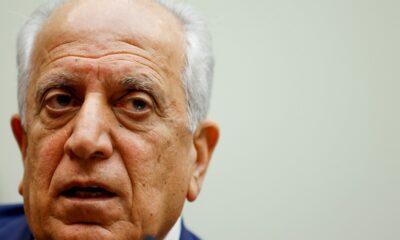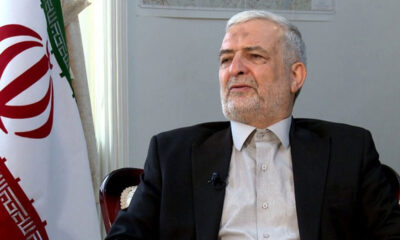Latest News
UN refugee chief in Kabul to say Afghans are not forgotten
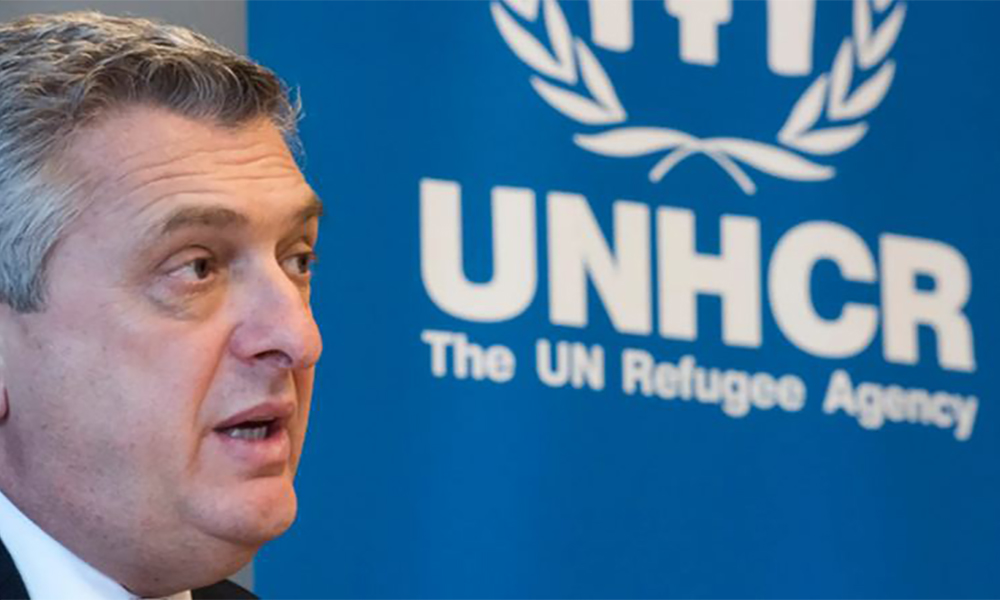
The head of the UN refugee agency came to Kabul on Tuesday to tell Afghans they have not been forgotten — despite the devastation of Russia’s war on Ukraine and the unfolding humanitarian crisis unseen in Europe since World War II.
For Afghans, the message from the UN High Commissioner for Refugees Filippo Grandi was very much needed as they seek stability even as Afghanistan plunges deeper into poverty, seven months since the Islamic Emirate of Afghanistan (IEA) takeover in mid-August.
It was only last year that the world watched as young Afghan men clung to departing American aircraft, some falling to their death as a stream of refugees left the country. Now, a stunned international community watches as the refugee exodus from Ukraine topped 3 million on Tuesday.
In an interview with The Associated Press, Grandi said some have wondered at the timing of his trip. But even as the world’s attention has shifted, the crisis in Afghanistan is deep, he said in Kabul.
A report Tuesday from the UN organization coordinating humanitarian aid said that a staggering 96% of Afghanistan’s 38 million people do not have enough food.
In Kabul, Grandi met IEA leaders Tuesday and was to travel to southern Kandahar and eastern Nangarhar provinces before departing on Thursday. He acknowledged having seen progress since his last visit in September.
He said IEA leaders are establishing structures and developing strategies on how to tackle burning issues as they shift from war to governing and running day-to-day matters of state.
“I can see that they have gained more experience,” Grandi said, adding that this time, he had “a stronger impression of professional strategies in certain areas.”
His conversations were frank, Grandi said — he heard the IEA speak of support for girls education. That promise will be tested later this month, when Afghanistan’s new rulers have pledged to reopen schools for girls of all ages.
The IEA have also spoken to him about the rights of minorities and having women in the workforce. He welcomed the commitment and while women are still restricted in the jobs they do, they have returned to work in two sectors — health and education. And at Kabul’s international airport, women work in passport control and customs.
Grandi, however, also urged the international community to reach out to Afghanistan’s new rulers.
“I do hope that the international community does take note of both actual progress and good intentions, because they also have to make steps in the direction of the IEA, otherwise these intentions will not materialize,” he said.
Still Grandi said there is much to be done by the IEA and by the international community to keep Afghanistan peaceful and move the country from the state of a humanitarian disaster to a developing economy.
“There is progress but whether that progress is already felt in the country, I think it’s too early to say,” said Grandi.
But he warned that with the scope of the persisting humanitarian crisis in Afghanistan, “so much suffering, so much hunger, so much despair ... it will take time.” - AP
Latest News
IEA says Israel’s actions more complicate situation in the region
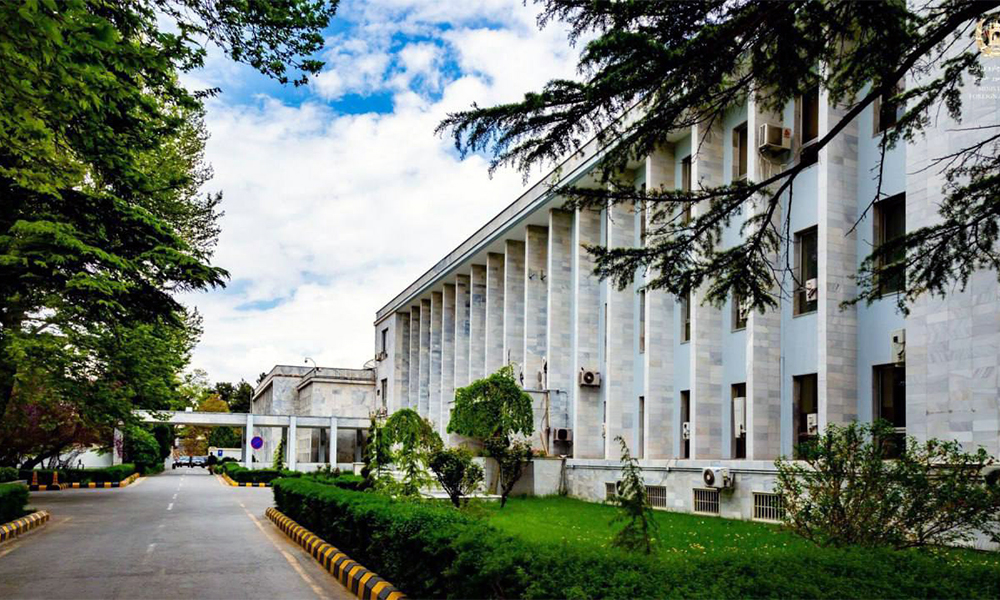
The Ministry of Foreign Affairs of the Islamic Emirate has condemned the attacks of the "Zionist regime" on Iran and said this country's actions are an attempt to intensify violence in the region, which makes the unpleasant situation in the region even more complicated.
The Ministry of Foreign Affairs said in a statement on Saturday that Israel's actions are considered a clear violation of Iran's privacy.
“All the influential parties are responsible for stopping the Zionist regime from spreading more violence and crimes in the region,” the statement said.
The statement stated: “Unfortunately, in the course of more than a year, the Zionist regime not only ended its crimes in Gaza but also expanded it to other areas.”
The ministry added that continuing this situation has led to serious concerns about the humanitarian and security situation in the region.
The Iranian army confirmed on Saturday that the country's military bases in three provinces, including Tehran, Khuzestan and Ilam, were targeted by Israeli attacks.
Latest News
IEA’s restrictions on girls’ education cannot be called Islamic: Khalilzad
Khalilzad said in a post on X that the current IEA leadership has “sadly turned Afghanistan into the only country in the entire world where female education above elementary school is not allowed.”
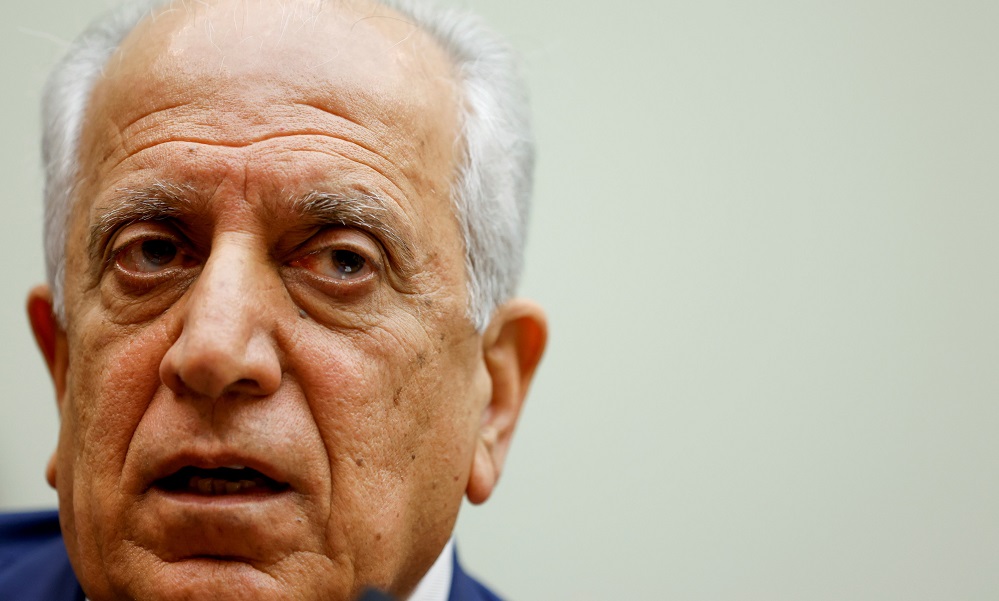
Zalmay Khalilzad, former US special envoy for Afghanistan peace, has criticized the Islamic Emirate’s restrictions on girls’ education, saying that the move cannot be called Islamic.
Khalilzad said in a post on X that the current IEA leadership has “sadly turned Afghanistan into the only country in the entire world where female education above elementary school is not allowed.”
“This includes the Islamic world, leading to the conclusion that what is being done on girls' and women's higher education can not be called Islamic. In fact, calling it Islamic is a disgrace,” Khalilzad said. “It is not shared by even one other Islamic country.”
The former diplomat mentioned that BRICs in their summit statement added their voices to the uniform global opposition to this policy of the IEA.
The Islamic Emirate has previously said that laws in Afghanistan are based on Sharia, and that the girls’ education is an internal matter.
Latest News
Mullah Baradar inaugurates construction of second Kabul-Jalalabad road
Mullah Baradar said that the road will be built based on the decree of the leader of the Islamic Emirate and with toll collected on Kabul-Jalalabad highway.

Deputy Prime Minister for Economic Affairs Mullah Abdul Ghani Baradar inaugurated the construction of a second road between Kabul and Jalalabad cities on Saturday.
Mullah Baradar said at a ceremony that the road project is important for transportation as it would connect the two major commercial and strategic provinces of Kabul and Nangarhar.
He added that trade facilities between the two important economic, commercial and transit provinces would not only contribute to the growth of domestic trade, but also play an important role in the development of trade relations with countries in the region and beyond and can contribute to the national economy of the country.
Mullah Baradar said that the road will be built based on the decree of the leader of the Islamic Emirate and with toll collected on Kabul-Jalalabad highway.
He said that with the completion of the second Kabul-Jalalabad road, traffic congestion in the first road will be reduced, which will reduce traffic accidents.
Mullah Baradar said that the construction of the road will facilitate traffic, safe, low-cost and fast transportation of commercial goods, and will also lead to the growth of small and medium-sized businesses along the road.
The second road of Kabul-Jalalabad highway, which is 150 kilometers long, starts from Bagrami district of Kabul and passes through Kabul’s Khak Jabbar district and Hesarak, Khogyani and Surkhrod districts in Nangarhar province before it is connected to Nangarhar’s ring road.
-

 Sport4 days ago
Sport4 days agoAfghanistan A make ACC Emerging Asia Cup semis despite Hong Kong’s win
-
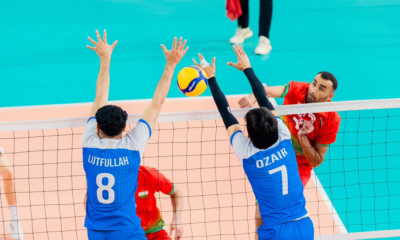
 Sport4 days ago
Sport4 days agoAfghanistan volleyball team tumbles 3-2 to Tajikistan
-

 Sport4 days ago
Sport4 days agoACB names squad for Afghanistan’s ODI series against Bangladesh
-
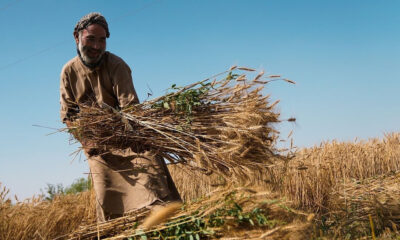
 Latest News5 days ago
Latest News5 days agoAfghanistan’s wheat production for this year up by 10%
-

 Latest News5 days ago
Latest News5 days agoGhazni dam project underway after initial survey conducted
-
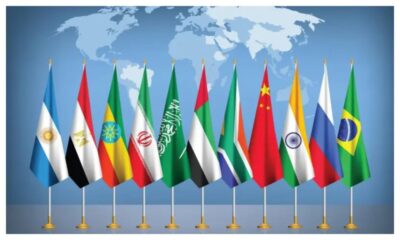
 Latest News5 days ago
Latest News5 days agoBRICS summit gets underway in Kazan, Russia
-
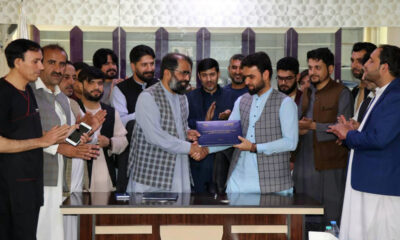
 Health4 days ago
Health4 days agoAIJU seals deal with private hospital for Afghan media workers
-

 Latest News3 days ago
Latest News3 days agoWife of late boxing legend Mohammad Ali to visit Kabul






